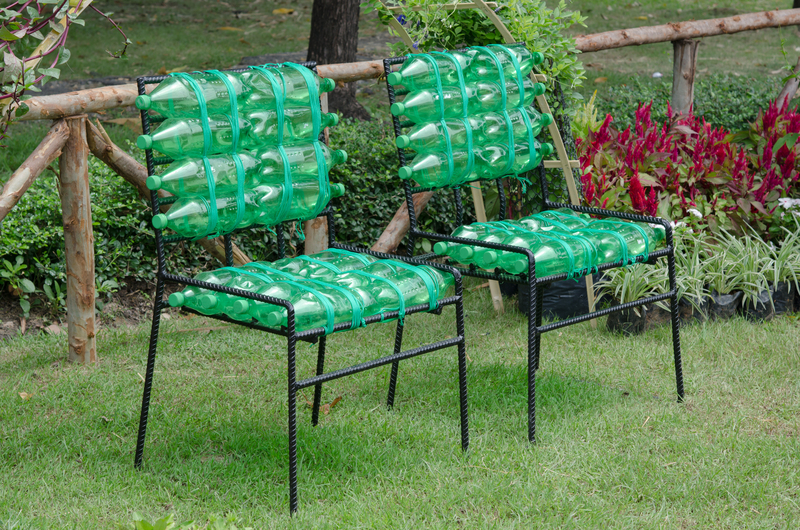How to Handle Electronic Waste Safely
Posted on 03/03/2025
In our modern, technology-driven world, the rapid evolution of devices and gadgets means that electronic waste (e-waste) is accumulating at an alarming rate. From outdated smartphones and laptops to broken televisions and batteries, e-waste poses a significant threat to our environment if not handled properly. Learning how to handle electronic waste safely is crucial for both individual and environmental health. In this article, we'll delve into various methods and tips to responsibly manage e-waste.
Understanding Electronic Waste
Electronic waste refers to discarded electrical or electronic devices. These items are commonly known as e-waste and include a wide range of products such as computers, mobile phones, televisions, and kitchen appliances. E-waste can be hazardous due to the presence of toxic substances like lead, mercury, and cadmium, which can harm the environment and human health if improperly disposed of.

Why Proper Disposal is Crucial
The improper disposal of e-waste can lead to severe environmental and health hazards. When e-waste is dumped in landfills, toxic substances can leach into the soil and groundwater, contaminating drinking water supplies and harming wildlife. Additionally, improper recycling methods, such as burning, can release harmful chemicals into the air, contributing to air pollution and respiratory problems.
Steps to Handle E-Waste Safely
To properly manage electronic waste, follow these essential steps:
1. Reduce and Reuse
The first step in handling e-waste is to minimize its generation. Before purchasing new electronic devices, consider whether an upgrade is truly necessary. Extend the life of your gadgets by taking good care of them, performing regular maintenance, and repairing them when possible instead of replacing them.
2. Donate or Sell
If your electronic devices are still functional but no longer serve your needs, consider donating or selling them. Many non-profit organizations and schools accept used electronics, which can be refurbished and reused. Additionally, selling functioning devices can help reduce e-waste while providing others with access to affordable technology.
3. Utilize E-Waste Recycling Programs
Many manufacturers and retailers offer take-back or recycling programs for old electronics. These programs ensure that devices are properly dismantled and recycled, recovering valuable materials and preventing hazardous substances from contaminating the environment. Look for certified e-waste recyclers in your area and drop off your unwanted electronics at designated collection points.
Tips for Safe E-Waste Disposal
- Erase Personal Data: Before disposing of your electronic devices, ensure that all personal data is securely erased to protect your privacy.
- Avoid Illegal Dumping: Never dispose of e-waste in regular trash bins or dumpsters. Instead, use authorized recycling centers.
- Check Local Regulations: Familiarize yourself with local laws and regulations regarding e-waste disposal, as they may vary depending on your location.
- Purchase Eco-Friendly Products: Opt for electronics from manufacturers that prioritize sustainability and offer recycling programs.
- Educate Others: Spread awareness about the importance of proper e-waste disposal among friends, family, and colleagues.
Pros and Cons of E-Waste Management
Pros
- Reduces environmental pollution and protects ecosystems.
- Promotes the recovery of valuable materials like gold, silver, and copper.
- Prevents toxic substances from contaminating soil and water sources.
- Supports sustainable development by promoting responsible consumption and production.
Cons
- Can be costly to implement proper recycling and disposal programs.
- Lack of awareness and education may lead to improper e-waste disposal.
- Informal recycling practices in some regions may still pose environmental and health risks.

Takeaways
Handling electronic waste safely is vital to protect our environment and health. By reducing e-waste generation, donating or selling functional devices, and utilizing recycling programs, we can collectively make a difference. Remember to erase personal data before disposal, avoid illegal dumping, and educate others about responsible e-waste management.
Conclusion
As the demand for electronic devices continues to grow, so does the challenge of managing electronic waste. By adopting safe e-waste handling practices and promoting awareness, we can mitigate the environmental impact and create a more sustainable future. Let's take responsibility for our electronic waste and make eco-friendly choices that benefit both our communities and the planet.
Latest Posts
Resource Efficiency with Polystyrene Recycling
Essential Hacks for a Tidy Home




